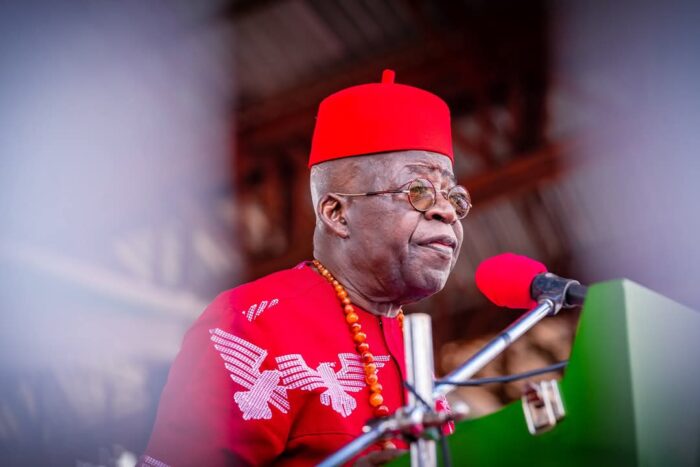News
Tinubu visits Anambra, acknowledges economic hardship, defends reforms

President Bola Ahmed Tinubu has acknowledged the depth of Nigeria’s economic woes upon assuming office in 2023, describing the nation’s public finances as “near-insolvent” and its monetary structure as chaotic. Speaking during a state visit and grand reception in Anambra State on Thursday, the President said bold, often painful reforms were necessary to set the country on a path to stability and growth.
“We met near-insolvent public finance, a decades-old monster of unsustainable multiple subsidies, a chaotic and debilitating forex regime,” Tinubu said in Awka, standing before a crowd that included state officials, traditional rulers, and citizens. “Just as we tamed the Atlantic in Lagos, many of these monsters have been tackled.”
This candid admission represents one of Tinubu’s most direct assessments yet of the legacy left by former President Muhammadu Buhari, under whose administration public debt soared, inflation worsened, and fuel subsidy expenses spiraled out of control.
The President defended his administration’s sweeping economic reforms, including the removal of fuel subsidies and the unification of the foreign exchange market, noting that while these decisions have caused discomfort, they are beginning to restore investor confidence and macroeconomic order.
“These reforms are difficult, yes, but inevitable,” he said. “Courage and our collective action were required to confront them in order to lay a strong foundation for a more stable, prosperous, and inclusive economy.”
Tinubu’s visit, his first official trip to Anambra since taking office, also saw the commissioning of key infrastructure projects executed by Governor Chukwuma Charles Soludo. Among them were the Solution Fun City and a newly built Government House mini-city, which the President praised as symbols of the state’s ambition.
READ ALSO: ‘I won’t help Tinubu tackle economic hardship unless…’ —Emir Sanusi
He lauded Governor Soludo’s vision of transforming Anambra into “an African-Dubai-Taiwan-Silicon Valley” and reaffirmed the Federal Government’s commitment to supporting the state, especially in security, technology, and manufacturing.
To cushion the effect of economic shocks on Nigerian workers, Tinubu pointed to the recent renegotiation of the national minimum wage, commending Anambra for not only implementing but exceeding the federal benchmark.
In a lighter moment that drew cheers from the audience, the President was honoured with a new chieftaincy title by the council of traditional rulers in Anambra. Grinning, he described the recognition as historic and joked that he now considers himself “a bona fide son of the soil,” requesting Governor Soludo to allocate him land for a future retirement home in the state.
Still, the visit unfolded under a cloud of public dissatisfaction. Across Nigeria, citizens continue to contend with soaring food prices, escalating fuel costs, and a steep decline in purchasing power. Yet Tinubu remained resolute in his message of hope and perseverance.
“Let us be patient,” he urged. “We have no other country but Nigeria. We must make it great.”
Join the conversation
Support Ripples Nigeria, hold up solutions journalism
Balanced, fearless journalism driven by data comes at huge financial costs.
As a media platform, we hold leadership accountable and will not trade the right to press freedom and free speech for a piece of cake.
If you like what we do, and are ready to uphold solutions journalism, kindly donate to the Ripples Nigeria cause.
Your support would help to ensure that citizens and institutions continue to have free access to credible and reliable information for societal development.




























